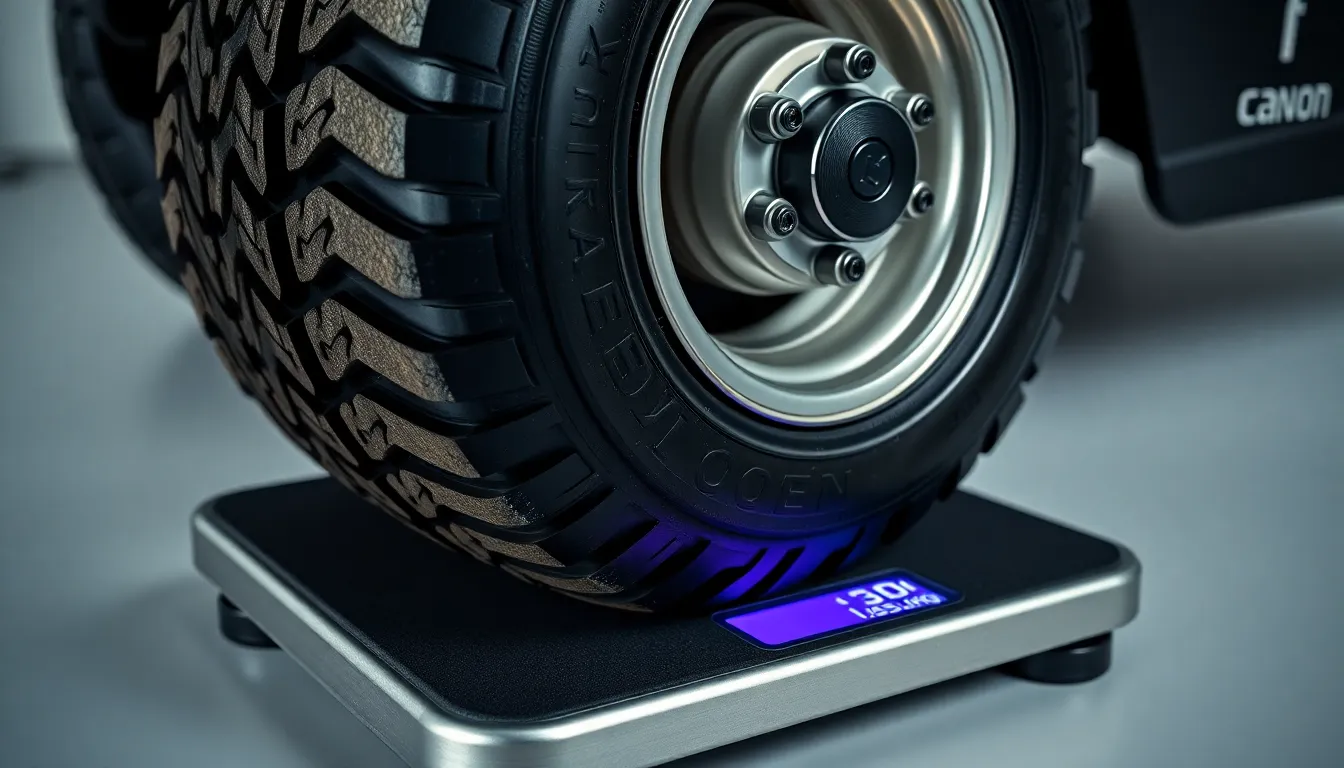
Best Golf Cart Accessories: Complete Buyer's Guide (2026)
Discover the 20 best golf cart accessories for 2026. From must-have safety gear to comfort upgrades, we cover prices, compatibility, and installation tips for Club Car, EZGO, and Yamaha.
Discover how much does a golf cart weigh, factors affecting weight, and why it matters. Complete guide with weights by type, brand, and model for 2026.

Planning to haul your golf cart on a trailer? Wondering if your deck can handle the weight? Golf cart weight varies widely by type, brand, and features. Most standard carts weigh 900 to 1,100 pounds (408-499 kg), but this can change significantly based on several factors.
The weight of a golf cart largely depends on its power source and seating capacity. Here are typical weights by category:
Electric carts weigh more than gas carts because of their heavy batteries. Here's what to expect:
Standard 2-Passenger Electric Cart:
Club Car, E-Z-GO, and Yamaha electric carts usually fall in this range. Premium models with extra features may weigh more.
Newer batteries are lighter. Today's electric carts weigh 10-15% less than older models but still go just as far.
Gas carts are lighter than electric carts:
Standard 2-Passenger Gas Cart:
Gas carts work well when weight matters, like for towing or on soft grass. But they're not as eco-friendly as electric models.
Want to know about running costs? Our article on golf cart motor power draw explains the differences.
As seating capacity increases, so does the weight of the golf cart:
4-Passenger Golf Carts:
6-Passenger Golf Carts:
These bigger "shuttle" carts are popular at resorts, events, and retirement communities. They weigh more because of their longer frames, extra seats, and bigger batteries.
For more information on different golf cart options and their capabilities, check out our article on how fast can a golf cart go.
Each brand builds carts differently, so weights vary even for similar models:
Club Car tends to build some of the lightest frames in the industry, while E-Z-GO models often feature more robust construction that adds extra weight.
Many things can change how much your cart weighs:
Batteries are a big part of an electric cart's weight:
Six lead-acid batteries weigh around 360-420 pounds total. Switching to lithium saves 150-200 pounds and works just as well or better.
What the cart is made of matters a lot:
High-end carts use aluminum and lightweight plastics to cut weight while staying strong.
Add-ons can make your cart much heavier:
A fully customized golf cart with premium accessories can easily add 200-300 pounds to the base weight. For a typical example, adding a lift kit, custom wheels, extended roof, and rear flip seat can add about 175 pounds.
Understanding the weight of your golf cart is important for several practical reasons:
When hauling your golf cart on a trailer or in a truck bed, staying within the vehicle's towing capacity and weight limits is critical for safety. A standard pickup truck may have a bed capacity of 1,500-2,000 pounds, while small utility trailers might be rated for 1,000-3,000 pounds.
If you plan to drive or store your cart on decking, flooring, or turf, knowing its weight helps prevent damage. Most residential decks are designed to support 40-50 pounds per square foot. A golf cart's weight is distributed across its wheels, creating concentrated pressure points.
Heavier carts require more power to move, reducing range and battery life. A 10% increase in golf cart weight can reduce battery range by 5-8% under typical conditions.
Golf courses and sports fields are concerned about ground pressure and potential turf damage. Lighter carts with proper tires cause less damage, especially in wet conditions.
Heavier carts consume more energy or fuel. Electric carts require more frequent charging, while gas carts use more fuel when carrying extra weight.
In some jurisdictions, vehicle classification and road-use regulations depend on weight. Carts under certain weight limits may be exempt from some requirements that apply to heavier vehicles.
When moving your golf cart, its weight impacts everything from the equipment you need to the methods you can use:
The right trailer depends on your golf cart's weight:
Always add a 20% safety margin to your golf cart's weight when selecting a trailer. For example, if your cart weighs 1,000 pounds, look for a trailer rated for at least 1,200 pounds.
Your tow vehicle must be rated to handle both the trailer and golf cart weight:
Remember that the towing capacity includes both the trailer weight and the golf cart weight. For safe towing, never exceed 80% of your vehicle's maximum towing capacity.
If you need guidance on legal aspects of using your golf cart, check our article on do you need a license to drive a golf cart.
If you need to reduce your golf cart's weight for transportation or performance reasons, consider these options:
Switching from lead-acid to lithium batteries is the single most effective weight reduction strategy, offering up to a 60% weight savings in the battery system.
A standard 2-seater golf cart typically weighs between 900-1,100 pounds (408-499 kg) for electric models with batteries installed, and 650-950 pounds (295-431 kg) for gas-powered models. The weight varies by brand, materials, and features.
Electric golf carts are typically heavier than gas golf carts when fully equipped. The weight of the battery pack (250-500 pounds) makes electric models heavier than gas models, which have lighter engines (80-100 pounds) and fuel systems.
A typical set of lead-acid batteries for a golf cart weighs between 250-500 pounds (113-227 kg) total. Individual batteries weigh about 60-80 pounds each, and most carts use 4-8 batteries. Lithium batteries are 40-60% lighter, with a comparable set weighing 100-200 pounds (45-91 kg).
Yes, most standard 2-passenger golf carts can be transported in a full-size pickup truck with an 8-foot bed, but you must check the truck's payload capacity first. Most full-size pickups have payload capacities between 1,500-3,000 pounds. Always secure the cart properly with appropriate straps and wheel chocks.
Most standard 2-passenger golf carts have a weight capacity of 800-1,200 pounds (363-544 kg) including passengers and cargo. Larger 4-passenger models typically have capacities of 1,200-1,600 pounds (544-726 kg). Always check your specific model's owner's manual for exact specifications.
The weight of your golf cart affects everything from performance and efficiency to transportation and storage. These specifications help you make smarter decisions about purchasing, hauling, and maintaining your cart.
Electric carts generally offer environmental benefits at the cost of additional weight from their batteries, while gas carts provide weight savings but require fuel and more maintenance. For many owners, the right choice depends on their specific needs, from terrain considerations to transportation requirements.
By understanding the factors that influence golf cart weight and how to manage them, you can make informed decisions that enhance your ownership experience and ensure safe, efficient operation for years to come.
Looking for a new golf cart? Check out our best golf carts of 2026 for top-rated models across all weight classes, or compare top golf cart brands to find the right fit for your needs.

Discover the 20 best golf cart accessories for 2026. From must-have safety gear to comfort upgrades, we cover prices, compatibility, and installation tips for Club Car, EZGO, and Yamaha.

Want a faster golf cart? See 10 speed upgrades ranked by cost ($10 to $5,000) with real MPH gains. Includes EZGO, Club Car, and Yamaha specific guides.

Buying a used golf cart? Use our inspection checklist to avoid costly mistakes. See fair prices by age, brand-specific tips, and red flags to watch for.
Get the latest updates on golf cart services, tips, and exclusive offers delivered to your inbox.